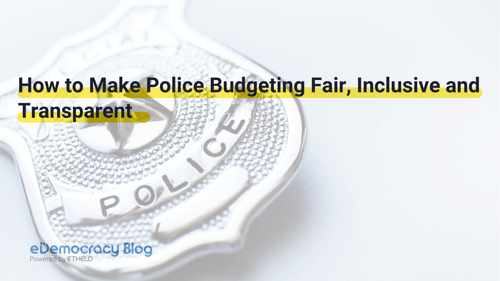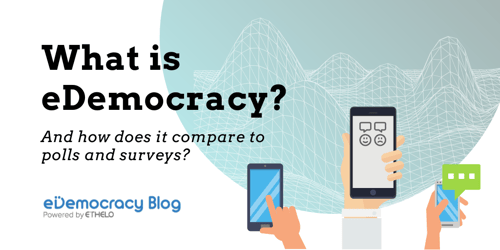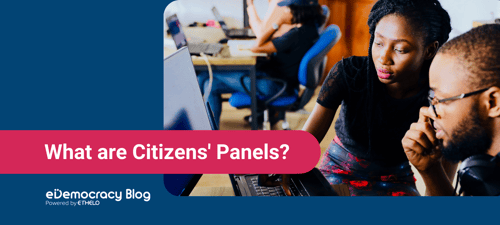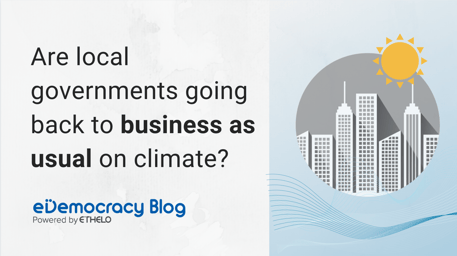
A few months after an unprecedented global shut-down, the world is cautiously beginning to wonder what comes next in a post-COVID era. So far, are things going back to ‘business as usual’ for local governments? In a recent eDemocracy Webinar, 81% of attendees from as far afield as Fredericton, NB to Fort Collins, CO, answered this polling question in the same way: while things are starting to open up, we’ve still got a ways to go before we’re back to normal.
For local governments, business as usual means getting back to the ability to plan their communities long-term into the future. For the climate, it means being on track for 3ºC of planetary warming. Even as we recover from the pandemic, the impending natural disasters, health crises, and inequalities exacerbated by climate change will throw our long-term planning into question. It’s clear that we simply can’t afford to go back to business as usual. In the Keeping Your Climate Action Plan on Track During Covid Webinar, expert panelists from local governments and climate action NGOs discuss where they see opportunities to place climate resilience and equitable transitions at the heart of their recovery plans.
“I think it's become really clear as we reimagine this city that we don't need to put it back the way it was,” said Councillor Ben Henderson of the City of Edmonton, which declared a climate emergency just shy of a year ago. “We can imagine the next version of the city we want. And that's a conversation that's very, very active right now in the city.”
“I think it's become really clear as we reimagine this city that we don't need to put it back the way it was."
“Where does the money come from?”
It won’t be easy. Funding is the major issue here - 35% of the Webinar respondents said that budgeting was their biggest obstacle to climate action right now. Cities are in a major operating crunch, climate plans are being cut from pinched municipal budgets, and councils are rightfully cautious of shouldering any extra costs onto residents.
“One of the fights we need to be having coming out of this is for some kind of new fiscal tools for local governments,” said Councillor Christine Boyle, who is a driving force behind many of Vancouver’s climate policies. “Pushing for a new fiscal deal for cities is part of the climate work ahead, so that we don’t return to business as usual, and we come out of this better than we had been.”
On the heels of the EU’s biggest green stimulus package in history, Henderson and Boyle are hopeful for stimulus announcements and green recovery dollars from higher levels of government here in Canada. In Alberta, the focus will likely be on job creation, which Councillor Henderson believes could take the form of green work. In terms of existing funding opportunities, Henderson, who is also the Chair for the Federation of Canadian Municipalities, announced in the Webinar that an extra billion dollars through FCM’s Green Municipal Fund is now open to applications from local governments. Relevant programs include those fore-fronting community efficiency financing, as well as sustainable, affordable housing development.
Happily, FCM reports that many of the communities in their network anticipate that their sustainability goals are still on track. The idea of a carbon budget is also picking up steam as a method to guide municipal decision-making. After realizing that their existing strategies would have them fall short of their Paris Commitment targets, Edmonton city council passed an ambitious motion to commit to operating within their remaining greenhouse gas inventory.
“It’s easier said than done, but [now] that we know how much carbon we have to spend, every operational and capital decision has to go through that lens”, said Henderson. “Every year that ticks by is critical right now.” Council also recently approved a downtown district energy project in line with the carbon budget, despite a strained fiscal situation. It’s a decision that Henderson believes bodes well for the future of sustainability planning, post-COVID.
- MORE RESOURCES: What is a municipal carbon budget?
- Why are carbon budgets and community engagement so important?
Connecting the dots
Meanwhile, Vancouver is getting ‘shovel-ready’ in anticipation of federal funding announcements. For Councillor Boyle, moving beyond business as usual means focusing on projects that prioritize fairness and equity. “Our role as elected leaders is to be digging a little deeper to make sure that we’re hearing voices and stories from [those] who are most impacted,” she said. “There’s still this tension about who gets the most space in these stories about what the critical issues are.” Increased patio space and bike lanes are popular right now, but these risk overshadowing lesser-heard issues like the reduced bus service available to essential workers as a result of plunging ridership.
Understandably, there’s been uncertainty over whether it’s the ‘right time’ to be advancing climate policy and engaging the public. Something that merits consideration are the findings from Abacus Data polling that show people are more likely to be supportive of new climate policies that address equity and inclusion. According to Sherry Yano, Manager of Energy Transitions for the David Suzuki Foundation, these values become more relevant than ever as people are made starkly aware of inequalities in our society. As the disproportionate vulnerability to COVID of minority and low-income communities becomes clear, and issues like the digital divide are brought back into focus, it’s suddenly easier to connect the dots between those same vulnerabilities and the impacts of climate change.
- MORE RESOURCES: Why are some people left out of digital democracy?
Despite the isolation and anxiety surrounding COVID, Canadians have been more compassionate and caring towards each other and their communities. “There’s potential now to hear these values and respond to them in co-creating a safer, more resilient future with residents,” said Sherry. “It really shouldn't just be the ad agencies that read people's values closely and create campaigns that resonate with them.”
“It really shouldn't just be the ad agencies that read people's values closely and create campaigns that resonate with them.”
Co-creating the future
So, how do you co-create that safer, more resilient future? While local governments can lead the way, they can’t do the heavy lifting without their communities behind them. As they wait for capital funding, local governments can continue to make people aware of the opportunities and benefits of taking climate action in their own lives. Working with the David Suzuki Foundation, Sherry Yano has found that behaviour change has the dual benefit of leading to a more engaged public that wants to take an active role in policy-making. “When people take action to change their own behaviours, they're very interested in leaning in and participating civically with their elected officials to change things systems-wide.”
Ben West, eDemocracy Solutions Executive Director and climate leader, also believes that we are in a key moment to strengthen democracy and public participation. One way to do this is by involving the public in creating a climate emergency plan. Building on the idea of the ‘municipal carbon budget’, eDemocracy’s Carbon Budgeting platform allows policy-makers and residents to collaboratively design an emissions plan and discover the paths forward that are the most likely to garner community buy-in.
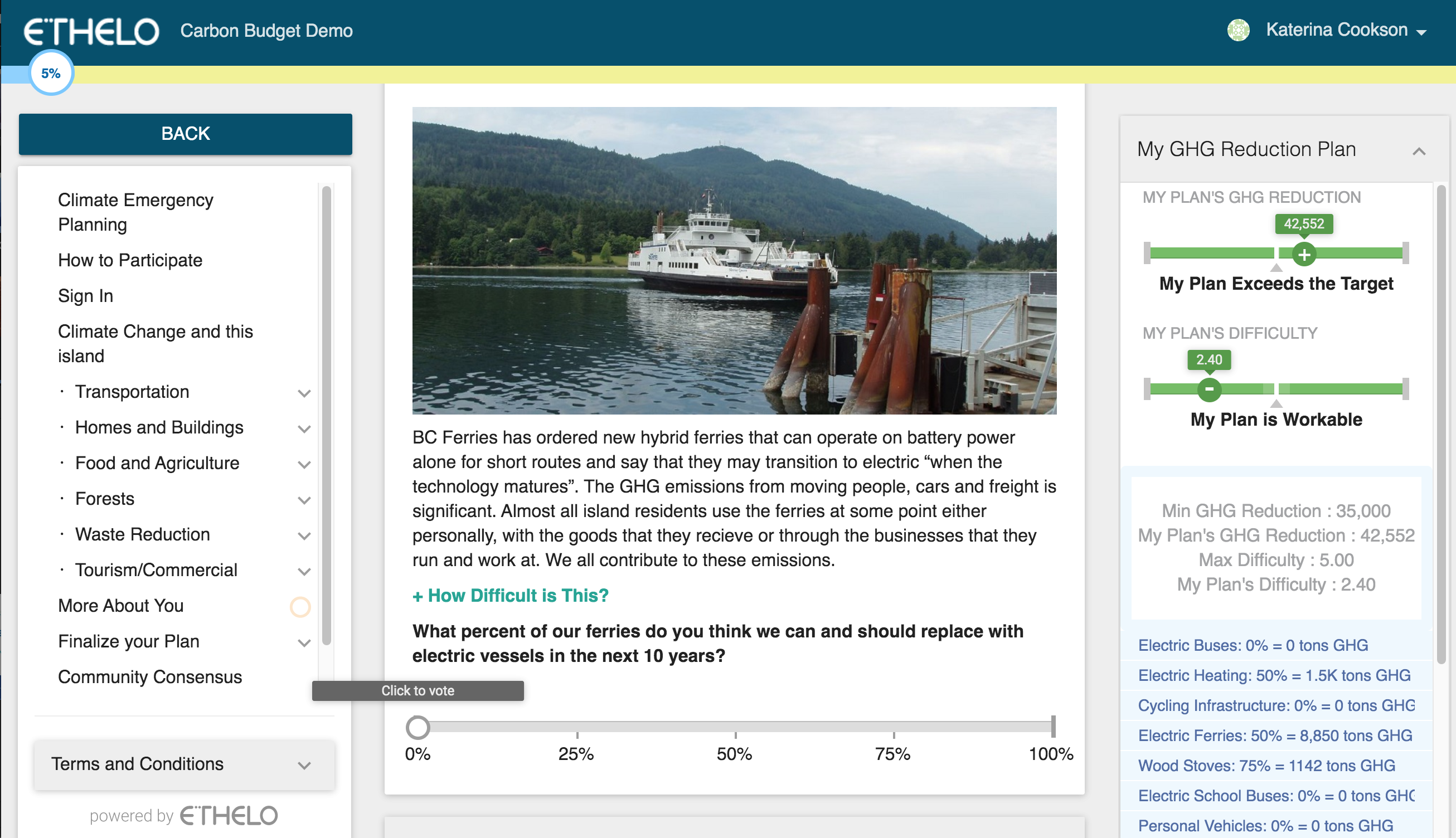
Screenshot of Carbon Budget.
Participants are educated about the sources of emissions and are invited to reflect on their own priorities, while learning about the trade-offs that must be made to reach IPCC targets. The education piece can be invaluable. In Edmonton, for instance, Councillor Henderson noted that residents often don’t realize that converting a fleet of buses to electric is not so straightforward as it seems - it also comes with the challenges of building garage infrastructure and accessing clean energy.
Giving citizens the power to meaningfully participate in climate policy can yield surprising and hopeful results: on Salt Spring Island, where the platform is currently being piloted, the district discovered that community members are willing to pay far more for improved transit service than had originally been expected. Residents were given the opportunity to provide their input, and they responded by expressing their desire to come together and make the community better for all, even if that betterment comes at a cost to the individual.
- Curious about Salt Spring Island's pilot project? Sign up here to be emailed the in-depth case study when it's released.
Through crises like our current pandemic, it’s important to remember that everyone is experiencing the moment differently, and the best way to advocate for change that moves a community to a better place as a whole is by simply asking. Only by listening to the diverse voices of a community that are we able to ensure the way forward is an equitable one.
The disruption and chaos we are presently experiencing finds many of us longing for a return to normalcy. This is only natural, and yet, it’s important to remember that this upheaval is indicative of flaws in the system that will only worsen realities if left unchecked. So, instead of asking if we’re ready for a return to business as usual, we have been given the opportunity to ask “how can we do business better?” Unsurprisingly, the only way to answer this effectively is to ensure everyone gets a say in the end result.

